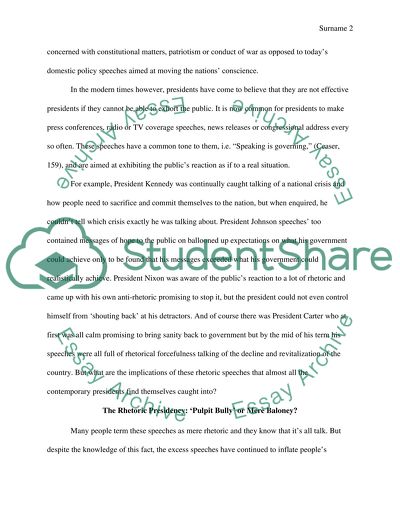Cite this document
(“The Rhetorical Presidency Essay Example | Topics and Well Written Essays - 1500 words”, n.d.)
The Rhetorical Presidency Essay Example | Topics and Well Written Essays - 1500 words. Retrieved from https://studentshare.org/history/1438534-what-is-the-rhetorical-presidency-is-it-an
The Rhetorical Presidency Essay Example | Topics and Well Written Essays - 1500 words. Retrieved from https://studentshare.org/history/1438534-what-is-the-rhetorical-presidency-is-it-an
(The Rhetorical Presidency Essay Example | Topics and Well Written Essays - 1500 Words)
The Rhetorical Presidency Essay Example | Topics and Well Written Essays - 1500 Words. https://studentshare.org/history/1438534-what-is-the-rhetorical-presidency-is-it-an.
The Rhetorical Presidency Essay Example | Topics and Well Written Essays - 1500 Words. https://studentshare.org/history/1438534-what-is-the-rhetorical-presidency-is-it-an.
“The Rhetorical Presidency Essay Example | Topics and Well Written Essays - 1500 Words”, n.d. https://studentshare.org/history/1438534-what-is-the-rhetorical-presidency-is-it-an.


